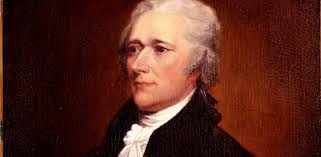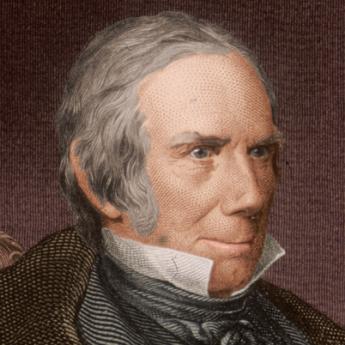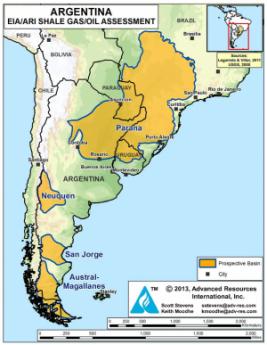Related Topics
...Tax and Monetary Issues in the Constitution, Others (2)
For some Delegates, taxes were all that mattered.
Improving Our Political System
Republics and their Flaws
American Finance After Robert Morris
Robert Morris can be fairly said to have made the American Revolution possible.
Dislocations: Financial and Fundamental
The crash of 2007 was more than a bank panic. Thirty years of excessive borrowing had reached a point where something was certain to topple it. Alan Greenspan deplored "irrational exuberance" in 1996, but only in 2007 did everybody try to get out the door at the same time. The crash announced the switch to deleveraging, it did not cause it.
Banking Panic 2007-2009 (1)
Mankind hasn't learned how to control sudden wealth, whether in families, third-world countries, or the richest nation in history. The world banking crisis of 2007 is the biggest example yet.
Albert Gallatin
A magnificent but largely forgotten man.
Unwritten Constitutional Modification
It is so difficult to amend the Constitution, we mostly don't do it. Our system is to have the Supreme Court migrate slowly through several small adjustments, watching the country respond. Occasionally we have imported new principles, sometimes not entirely wise ones, adopted without the same seasoning.
Right Angle Club: 2013
Reflections about the 91st year of the Club's existence. Delivered for the annual President's dinner at The Philadelphia Club, January 17, 2014.
George Ross Fisher, scribe.
National Debt, Presidential Hat Tricks, Shale Gas and Argentina

|
| Alexander Hamilton |
This-here speaker at the Right Angle Club began a discussion of the "Fiscal Cliff" razzle-dazzle of 2012, by changing his mind about the causes of the financial crash of 2007. Originally, it seemed as though globalizing 500 million Chinese out of poverty had destabilized the exuberant American mortgage market by flooding it with cheap credit. Supplanting that idea, or perhaps only supplementing it, must now be added the overextension of national debt itself to a point of bringing national borrowing to a halt.
Early in the Eighteenth century the Dutch and English had monetized national assets through a system of national borrowing formalized by Necker in Europe, and Robert Morris and Alexander Hamilton in America. Aside from a handful, no one could understand what they were talking about. Try reading that sentence a second time.
It amounted to guaranteeing all the private credit in the banking, investment, and commerce systems, with a national debt (in the form of Treasury bonds) which monetized all the assets of the whole nation. That action more or less doubled their value, just as any bank loan is seemingly owned by two people at the same time. Carried to an extreme, it might imply that America could turn Guam and Hawaii over to China if we defaulted on our debt. That was never actually intended to happen, and it never has, because all nations now fear the deflation which could result from triggering a massive exchange of national assets. The nebulous issue of "National Sovereignty" interferes with territorial transfers by any means other than war. If one nation defaults against a second nation which is afraid to go to war, it is just the stronger nation's hard luck about the debts it has chosen to support unless a transfer of assets actually happens. The Treaty of Versailles did transfer assets to the victors, and set off World War II, although it is considered bad manners to mention it. That's a simplified view of our international financial system, which admittedly skirts uncertainty about how much national debt is too much.
In fact, no one knows how much is too much until everyone runs for the exits. Now that politicians have control of computers and "big data", a modern description places the blame on Alan Greenspan the former Chairman of the Federal Reserve. For eighteen years Greenspan produced delicious world prosperity by steadily increasing American national debt faster than the American economy was growing. Sooner or later this approach was going to uncover how much was currently too much Federal debt. With silver and gold removed from the equation, one could see that default would certainly loom whenever the size of the debt became so large it could never be serviced by the Gross Domestic Product (GDP), and possibly sooner than that, if enough people could guess what was coming. This reality might be obscured temporarily by reducing interest rates, modifying international trade balances, and inflation. When the stars were in alignment however, the system just had to collapse and start over. Because it happened gradually, perhaps it would unwind gradually. In 2007 what happened was that everybody tried to get out the door at the same time. Essentially, our two political parties made opposite assessments: the party of Hamilton -- Republicans -- announced this system was doomed, while Democrats --the party of Andrew Jackson -- announced they could stave off disaster by making the rich Republicans pay for it. Both parties were partly right but essentially wrong, and the Democrats hired a better magician.

|
| Henry Clay |
It will take months or even years to be certain just what strategy was pursued. It would appear the Democrats chose to repeat the performance of the Obamacare legislation, eliminating national debate by eliminating the Congressional committee system of examining details in advance of a vote. Given one day to digest two thousand pages prepared by the Executive branch, no time was allowed for public opinion to form about Obamacare. In the case of the fiscal cliff episode, Congress was given less than one day to consider 150 pages allegedly prepared the day prior to the vote. Some will admire the skill of the executive branch in orchestrating this secret maneuver, but eventually, it must become apparent that policy decisions have been transferred from the legislative to the executive branch of government. Perhaps the Congressional Republicans are as stupid as the Democrats portray them to be, but it is also possible that a decision has been made to tempt the Democratic leaders into repeating this performance several times until eventually, the public is ready to consider impeachment for it. No matter what the strategy, we are now threatened with imagining some moment when gun barrels come level and live rounds slide home. We may pass up the opportunity to criticize Henry Clay for concentrating undue power in the Speaker of the House, or to uncover the way Harry Reid was persuaded to surrender Senate power to the Executive; both miscalculations are fast becoming irrelevant in the flurry of events. We came close to borrowing too much, exceeding our means to pay it back, that's all. A New York Times editorial economist feels we can "grow" our way out of this flirtation with danger, and we all certainly hope so.
Seemingly, there are only two ways to cope with over-borrowing, once we step over the invisible line. A nation may cheat its citizens with inflation, or it may cheat foreign citizens by defaulting on their currency. We are indebted to Rogoff and Reinhart for pointing out there is no difference between inflation and default except the identity of the cheated creditor; so most politicians prefer to cheat foreigners. Either way, cheating makes deadly enemies. Two centuries ago, Alexander Hamilton suggested a third way out of the problem, which we would today call "growth". But here, cheating is pretty easy: If the limit is some ratio of debt to GDP, find a way to increase nominal GDP.

|
| Shale Gas and Argentina |
The most astonishing current example of the power of "growth", is shale gas. It may not be totally clean, but it is cleaner than oil or coal, and far cheaper. We suddenly have so much of it the price of energy is artificially lowered, and we talk, not merely of energy independence, but of restoring the balance of international payments by exporting it. Germany is constructing steel mills to utilize iron ingots made in America with gas instead of coal. Pittsburgh was once the center of steel production because that's where the coal was, the most expensive ingredient to transport. Suddenly it is now apparently cheaper to transport the energy source to wherever you find limestone and iron ore. JP Morgan got rich the other way, transporting limestone and iron ore to Pittsburgh, where the coal was. Russia now finds it has lost its leverage over Eastern Europe's energy supply, and the Arabs (?Iranians?) will no longer have a monopoly to provide the wealth supporting Middle-Eastern mischief. China may lose interest in Africa. And in America we may develop the courage to rid ourselves of the corn subsidies for gasoline; cutting the wind and sunlight fumbles also emerge as obvious ways to cut the deficit. That's what we mean by growth. It's so powerful it makes action by any American President seem trivial by comparison.
Presumably, President Obama does not welcome being upstaged by an economic force he doggedly resisted. He may seek ways to imply it was his idea all along. When that happens, rest assured that everyone else is then a fracker. But there is another alternative Presidential path, which in extreme form is emerging in Argentina without much media attention. In short, Argentina discovered signs of oil deposits but was unable to exploit them. A European oil company was enticed to develop the oil reserves at its own expense, and effectively did so in expectation of reward from the resulting oil sales. Suddenly, the Kirchner government expropriated the oil company, paying for it with Argentine bonds. The ink was scarcely dry before the Argentine government abruptly turned around and offered to buy back the bonds for 24 cents on the dollar. And unless someone is willing to send gunboats, the previous owners of the oil company are just out of luck. Appeals to the UN are futile; because on the one-nation, one-vote principle, there are more expropriator votes in the UN than potential victims. The only thing visible which could save capitalism in South America from the revolution in shale gas competition. Presumably, Argentina has lots of shale gas, but who will lend them the money to frack it?
Originally published: Friday, January 04, 2013; most-recently modified: Sunday, July 21, 2019